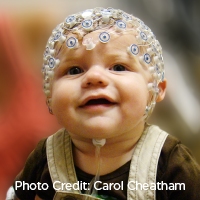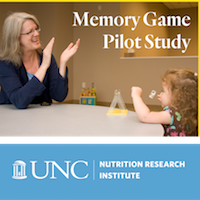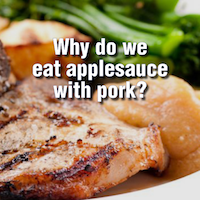
May 30, 2019 | Cheatham News, News
January 25, 2019 – Pregnant women are often consumed by dietary choices such as finding a great prenatal vitamin, eating foods that will promote fetal growth, and doing everything they can to protect their pregnancy. After delivery, however, the mother’s preoccupation with her diet often pauses for four to six months. The Cheatham Nutrition & Cognition Lab is turning this type of thinking on its head with the belief that what women eat while breastfeeding greatly impacts their breastmilk and ultimately, their children’s development.

May 16, 2019 | Cheatham News, News, Zeisel News
October 3, 2018 – Choline is present in human milk, and is especially important for fetal and infant development [2,3]. “The hint that choline is important for infant development comes from the fact that in human milk, the supply of choline remains constant across the first year of life,” says Professor Carol Cheatham from the University of North Carolina at Chapel Hill. Other important nutrients, such as docosahexaenoic acid (DHA), are present in large quantities initially, but often level off after a few months.

May 11, 2019 | Cheatham News, News
August 30, 2018 – The Cheatham Nutrition & Cognition Lab at the NRI is undertaking a new pilot study with 12- and 24-month-old children called the Memory Game Pilot Study. In this study the lab seeks to validate the props used in the elicited imitation paradigm, a nonverbal means of assessing recall memory in preverbal children. The props, which have been designed and produced in the Cheatham lab, will be implemented with a group of young children of the same ages in an already-planned, collaborative study with Emory University.

January 24, 2018 | Cheatham News, News, Uncategorized
January 29, 2018 – Have you ever wondered why we eat certain foods together? What is it about pork that demands applesauce? Wouldn’t a lovely piece of hard cheese go well with that glass of red wine? Is beef and broccoli just a dish or might there be a benefit to eating those together? It is difficult to trace how these traditional pairings got started. Apples with pork dates back to the time of Christ when an Ancient Roman named Apicius wrote down a recipe, but where did he get the idea? We find a clue in the story of why we eat mint with lamb. In an attempt to decrease the consumption of lamb and thereby increase wool exports, Queen Elizabeth I declared it unlawful to eat lamb without mint sauce, presumably because people disliked the taste of mint sauce (basically mint and vinegar). As it turned out, mint sauce was a great compliment to lamb. So, yes. Your first instinct was correct – we eat certain foods together because they taste good together!
July 27, 2017 | Cheatham News, News
July 27, 2017 – Carol L. Cheatham, PhD, has been selected to join the Education Board at the American Health Council. The council, comprising leaders and contributors from all areas of healthcare, is America’s leading organization in health awareness and advancement. Dr. Cheatham will share her knowledge and expertise on the effects of nutrition on brain development and function. […]
July 12, 2017 | Cheatham News, News
June 27, 2017 • Grant Canipe didn’t always know that he wanted to be a scientist. His revelation came one day at Northwest Cabarrus High School in Concord, NC, when a Duke University student came to Canipe’s AP biology class to discuss his research and plans for graduate school. Canipe found himself inspired by that student’s experience so much that he himself is now completing his doctorate at UNC Chapel Hill in developmental psychology and nutrition. He studies under the direction of Carol L. Cheatham, Ph.D. in the Cheatham Nutrition & Cognition Laboratory at the UNC Nutrition Research Institute (NRI), located on the North Carolina Research Campus in Kannapolis. […]



